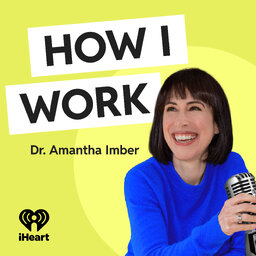How to reset your Health Habits with me (!) and Kayla Itsines
Sweat Daily crossover!
A few months ago, Sweat co-founder and fitspo star Kayla Itsines invited me on her podcast Sweat Daily to talk all about habits. And Kayla has kindly given me the interview to share with you guys! We discuss how to hack your health habits - through breaking down barriers, habit stacking and a technique called temptation bundling.
Check out Sweat Daily wherever you get your podcasts.
Looking to smash your fitness goals? Sign up to the Sweat app, or find us on InstagramInstagram - @sweat https://sweat.com/sweatdaily
Want more Kayla? You can find her on:Instagram - @kayla_itsinesTikTok - @kayla_itsines
My book The Health Habit is out now. You can order a copy here: https://www.amantha.com/the-health-habit/
Connect with me on the socials:
Linkedin (https://www.linkedin.com/in/amanthaimber)
Instagram (https://www.instagram.com/amanthai)
If you are looking for more tips to improve the way you work and live, I write a weekly newsletter where I share practical and simple to apply tips to improve your life. You can sign up for that at https://amantha-imber.ck.page/subscribe
Visit https://www.amantha.com/podcast for full show notes from all episodes.
Get in touch at amantha@inventium.com.au
In 1 playlist(s)
How I Work
You know those annoyingly successful people who seem to have it all figured out? Time to steal their…Social links
Follow podcast
Recent clips

BEST OF: I burnt out completely last year. This is how I recovered.
27:41

BEST OF: The People-Pleasing Trap: How Laura Henshaw escaped it (and how you can too)
35:19

BEST OF: Sahil Bloom on building a scoreboard that reflects what matters
37:07
 How I Work
How I Work